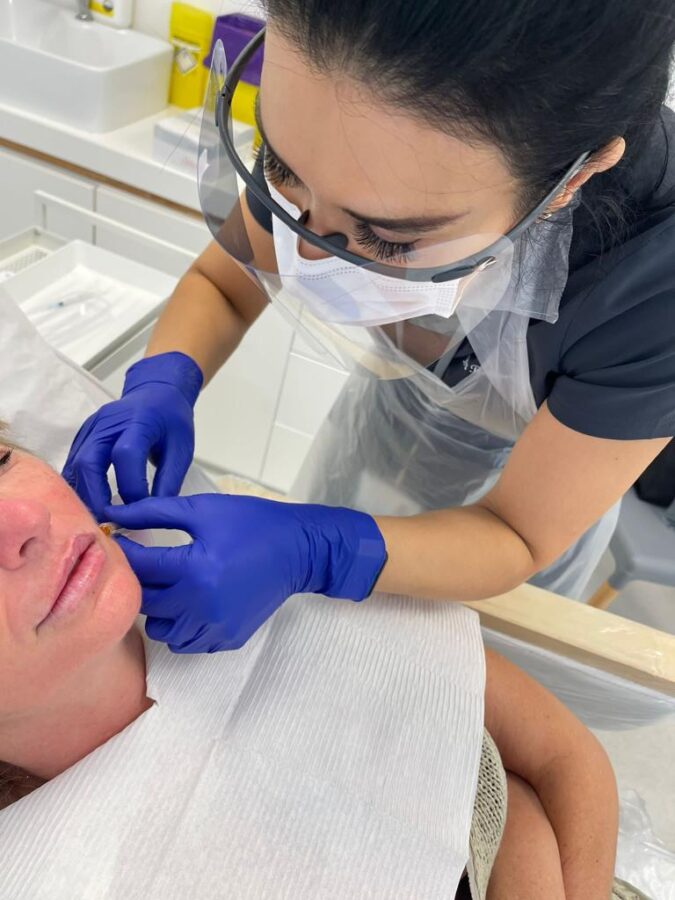 According to data from the American Society for Aesthetic Plastic Surgery Cosmetic Surgery (National Data Bank: Statistics 2018, 2019), the aesthetic industry continues to grow year after year. As the industry expands and treatments become more popular and available, it becomes difficult to choose from so many treatments, let alone to decide if they are right ones for you.
According to data from the American Society for Aesthetic Plastic Surgery Cosmetic Surgery (National Data Bank: Statistics 2018, 2019), the aesthetic industry continues to grow year after year. As the industry expands and treatments become more popular and available, it becomes difficult to choose from so many treatments, let alone to decide if they are right ones for you.
Everyone is having it…
Aesthetic treatments have become more common in recent years, and it’s possible that some people may feel pressure from peers or society to conform to certain beauty standards. This pressure can come in the form of societal expectations, or even direct pressure from friends or family.
It’s important to remember that aesthetic treatments should be a personal decision and not done solely to please others or because of peer pressure. It’s important to have realistic expectations and to understand the potential risks and side effects of any treatment before making a decision.
Additionally, it’s important to remember that beauty standards can be very subjective and vary greatly across cultures and societies. What one person may consider attractive may not be the same for another person.
I want to feel better about myself …
Aesthetic treatments can provide an element of luxury and can make people feel better, like the retail therapy phenomenon where people purchase items to improve their mood. Almost everyone likes having celebrity-style treatment. These treatments can provide relaxation and pampering, which can help to reduce stress and promote feelings of well-being. Additionally, aesthetic treatments can help to improve the appearance of certain features, which can boost self-confidence and self-esteem.
However, it’s important to remember that aesthetic treatments should not be used as a replacement for addressing underlying mental health issues or to cope with negative self-image. It’s important to have realistic expectations and to understand the potential risks and side effects of any treatment before making a decision.
Additionally, it’s important to be mindful of the cost and to ensure that the treatment is within your budget and not causing undue financial stress.
It’s important to remember that these treatments should be a treat and not a necessity, and it’s essential to have a healthy relationship with them, not using them as a crutch to feel good, but rather to enhance your well-being and self-care routine.
Instagram face
It is important to recognize that social media and other forms of media can shape our understanding of beauty and perfection, often through unrealistic and heavily edited images. It lifted our beauty standards to an incredibly high level, often impossible to achieve. It’s important to not get swayed by these images and focus on our own well-being and self-acceptance.
In short, it’s important to make your own choices and not to be influenced by peer pressure or societal expectations when it comes to aesthetic treatments, and to focus on what makes you feel good about yourself.
What is the best age to start?
There is no specific age at which someone should start considering aesthetic treatments, as the need for these treatments can vary greatly from person to person. Some people may start to consider aesthetic treatments in their teenage years, while others may not think about them until they are in their 40s or 50s. It ultimately depends on an individual’s personal goals and concerns. It’s important to remember that aesthetic treatments should be done under the guidance of a professional and with realistic expectations.
I still want to look better…
The decision to have aesthetic treatments is a personal one that should be based on an individual’s goals and motivations. Aesthetic treatments can help to improve the appearance of certain features and boost self-confidence, but they may also come with risks and potential side effects.
Before deciding to have an aesthetic treatment, it’s important to do research and understand the procedure, the potential risks and side effects, as well as the recovery time. It’s also important to speak with a qualified practitioner, who can provide you with more information about the procedure and determine whether you are a good candidate for it.
It’s also important to have realistic expectations about the results of the treatment, and not to do it for the purpose of pleasing others, but rather for oneself.
It’s also important to note that aesthetic treatments should not be used as a replacement for addressing underlying mental health issues such as body dysmorphia or to cope with negative self-image. If you have such concerns, it’s important to talk to a mental health professional.
In summary, it’s essential to weigh the pros and cons of aesthetic treatments and make an informed decision based on your personal goals and motivations, while also keeping in mind the potential risks and side effects, and also your own well-being.
 About the Author: Dr Rehanna Beckhurst – Aesthetic Clinician and Cosmetic Dentist at iFab Clinic Dr Rehanna Beckhurst (GDC 210244) qualified as a dentist in 2003 from Riga Stradins University, achieving Masters Degree in Dental Science. She always had a profound interest in cosmetic dentistry and aesthetic medicine. She qualified as a medical aesthetics practitioner in London in 2012 and is continuously attending courses and conferences to learn new techniques and improve her knowledge and skills as both: a dentist and an aesthetician.As well as general dentistry, Rehanna also offers cosmetic dentistry (veneers, crowns, teeth whitening and short term adult orthodontics) and facial aesthetics, and has recently obtained a Level 7 APEL and postgraduate certificate in aesthetic non-surgical interventions. Rehanna has worked in Europe and Middle East over the past years, and now patients from all over the world and from up and down the country travel to North Devon to have treatments with Dr Rehanna.Rehanna is also a member of ACE (aesthetic complications experts), and is highly trained in dealing with aesthetics complications by some of the country’s leading experts, and is accepting referrals from other doctors to treat aesthetic complications.
About the Author: Dr Rehanna Beckhurst – Aesthetic Clinician and Cosmetic Dentist at iFab Clinic Dr Rehanna Beckhurst (GDC 210244) qualified as a dentist in 2003 from Riga Stradins University, achieving Masters Degree in Dental Science. She always had a profound interest in cosmetic dentistry and aesthetic medicine. She qualified as a medical aesthetics practitioner in London in 2012 and is continuously attending courses and conferences to learn new techniques and improve her knowledge and skills as both: a dentist and an aesthetician.As well as general dentistry, Rehanna also offers cosmetic dentistry (veneers, crowns, teeth whitening and short term adult orthodontics) and facial aesthetics, and has recently obtained a Level 7 APEL and postgraduate certificate in aesthetic non-surgical interventions. Rehanna has worked in Europe and Middle East over the past years, and now patients from all over the world and from up and down the country travel to North Devon to have treatments with Dr Rehanna.Rehanna is also a member of ACE (aesthetic complications experts), and is highly trained in dealing with aesthetics complications by some of the country’s leading experts, and is accepting referrals from other doctors to treat aesthetic complications.
